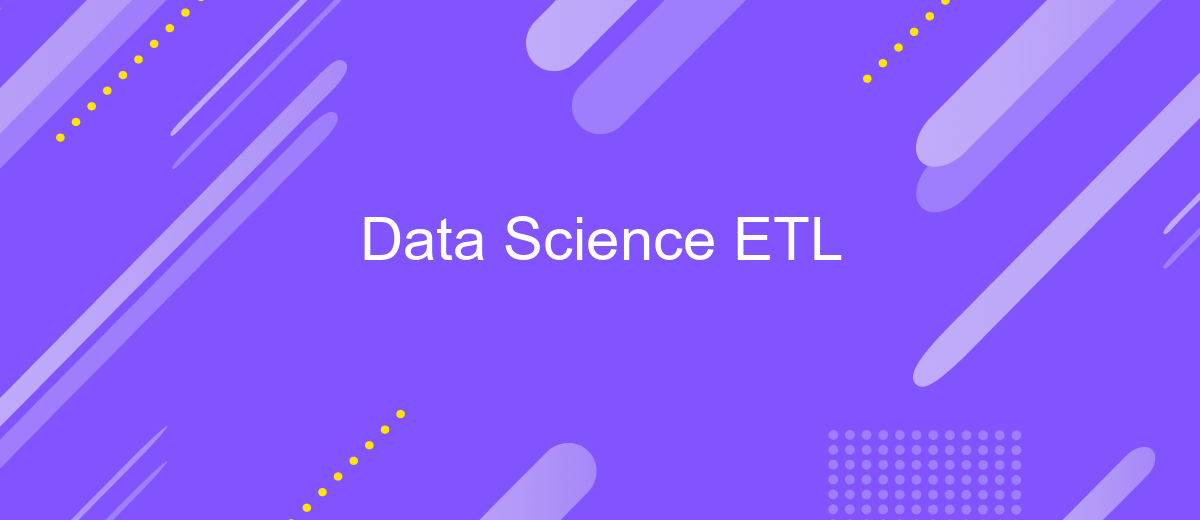Data Science ETL
Data Science ETL (Extract, Transform, Load) is a crucial process in the realm of data analysis and management. It involves extracting data from various sources, transforming it into a suitable format, and loading it into a data warehouse or database. This article delves into the intricacies of ETL, highlighting its significance, methodologies, and best practices in the field of data science.
Introduction to Data Science ETL
Data Science ETL (Extract, Transform, Load) is a fundamental process in the field of data science, enabling the efficient extraction, transformation, and loading of data from various sources into a centralized database or data warehouse. This process is crucial for data analysis, reporting, and decision-making.
- Extract: This step involves retrieving data from different sources such as databases, APIs, and flat files.
- Transform: The extracted data is then cleaned, normalized, and transformed into a suitable format for analysis.
- Load: Finally, the transformed data is loaded into a target system like a data warehouse or a data lake.
Efficient ETL processes are essential for maintaining data quality and integrity. Tools like ApiX-Drive can simplify the integration of various data sources, automating the extraction and loading processes, and allowing data scientists to focus on analysis rather than data wrangling. By leveraging such tools, organizations can streamline their data workflows and enhance their data-driven decision-making capabilities.
Benefits of Using ETL

ETL (Extract, Transform, Load) processes offer numerous benefits for data science projects. One of the primary advantages is the ability to handle large volumes of data efficiently. By extracting data from multiple sources, transforming it into a usable format, and loading it into a data warehouse, organizations can ensure that their data is clean, consistent, and ready for analysis. This streamlined process saves time and reduces the risk of errors, enabling data scientists to focus on generating insights rather than data preparation.
Another significant benefit of using ETL is the integration capabilities it provides. Tools like ApiX-Drive facilitate seamless integration between various data sources and destinations, automating the data flow and reducing manual intervention. This not only enhances productivity but also ensures real-time data availability, which is crucial for making timely decisions. By leveraging ETL processes, businesses can create a robust data infrastructure that supports advanced analytics, leading to better decision-making and improved operational efficiency.
The ETL Process

The ETL (Extract, Transform, Load) process is a critical component in Data Science for managing and analyzing data. It involves extracting raw data from various sources, transforming it into a suitable format, and loading it into a data warehouse or other storage systems. This process ensures that the data is clean, consistent, and ready for analysis.
- Extract: Data is collected from multiple sources such as databases, APIs, or flat files. Tools like ApiX-Drive can help automate the integration and extraction of data from various platforms.
- Transform: The extracted data is then cleaned and transformed. This step may involve data normalization, filtering, aggregation, and enrichment to ensure the data is in a usable state.
- Load: Finally, the transformed data is loaded into a data warehouse, database, or other storage solutions. This ensures that the data is accessible for analytical queries and business intelligence.
Implementing a robust ETL process is essential for any data-driven organization. It allows for seamless data integration, improved data quality, and better decision-making capabilities. Tools like ApiX-Drive simplify the integration and automation of the ETL process, making it easier to manage and utilize data effectively.
Challenges in ETL

Extract, Transform, Load (ETL) processes are crucial in Data Science for consolidating data from multiple sources. However, they come with their own set of challenges. One of the primary issues is data quality. Inconsistent, incomplete, or incorrect data can severely impact the results of data analysis, making it essential to implement robust data validation mechanisms.
Another significant challenge is handling large volumes of data. As data grows exponentially, ETL processes can become slow and inefficient. This requires scalable solutions and efficient algorithms to manage and process data effectively. Additionally, maintaining data security and compliance with regulations such as GDPR is a constant concern.
- Data Quality: Ensuring accuracy, completeness, and consistency.
- Scalability: Handling large data volumes efficiently.
- Security: Protecting sensitive data and ensuring compliance.
- Integration: Seamlessly connecting various data sources.
Integrating various data sources can also be a complex task. Tools like ApiX-Drive can simplify this process by providing seamless integration solutions, reducing the manual effort involved. By addressing these challenges, organizations can ensure more reliable and efficient ETL processes, ultimately leading to better data-driven decisions.
Best Practices for ETL
Effective ETL (Extract, Transform, Load) processes are crucial for ensuring data quality and operational efficiency in Data Science projects. One of the best practices is to thoroughly understand the data sources and their structures before initiating the ETL process. This helps in designing a robust data extraction strategy that minimizes errors and ensures data completeness. Additionally, it’s important to use scalable and flexible ETL tools that can handle large volumes of data and adapt to changing data requirements.
Another best practice is to implement data validation and error-handling mechanisms at every stage of the ETL process. This ensures that any discrepancies or issues are identified and addressed promptly, maintaining the integrity of the data. Leveraging integration services like ApiX-Drive can significantly streamline the ETL process by automating data transfers between various platforms and applications, reducing manual effort and the risk of errors. Regularly monitoring and optimizing the ETL workflows also helps in maintaining performance and efficiency over time.
FAQ
What is ETL in Data Science?
Why is ETL important in Data Science?
What are the common challenges in ETL processes?
How can ETL processes be automated?
What skills are needed to perform ETL in Data Science?
Strive to take your business to the next level, achieve your goals faster and more efficiently? Apix-Drive is your reliable assistant for these tasks. An online service and application connector will help you automate key business processes and get rid of the routine. You and your employees will free up time for important core tasks. Try Apix-Drive features for free to see the effectiveness of the online connector for yourself.

